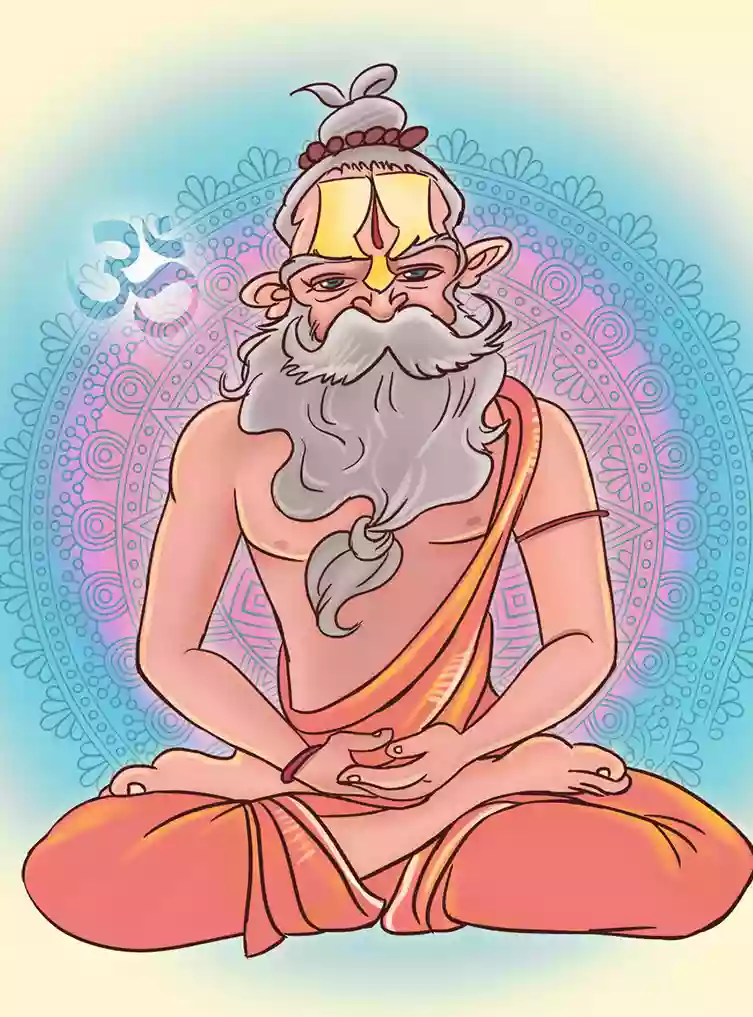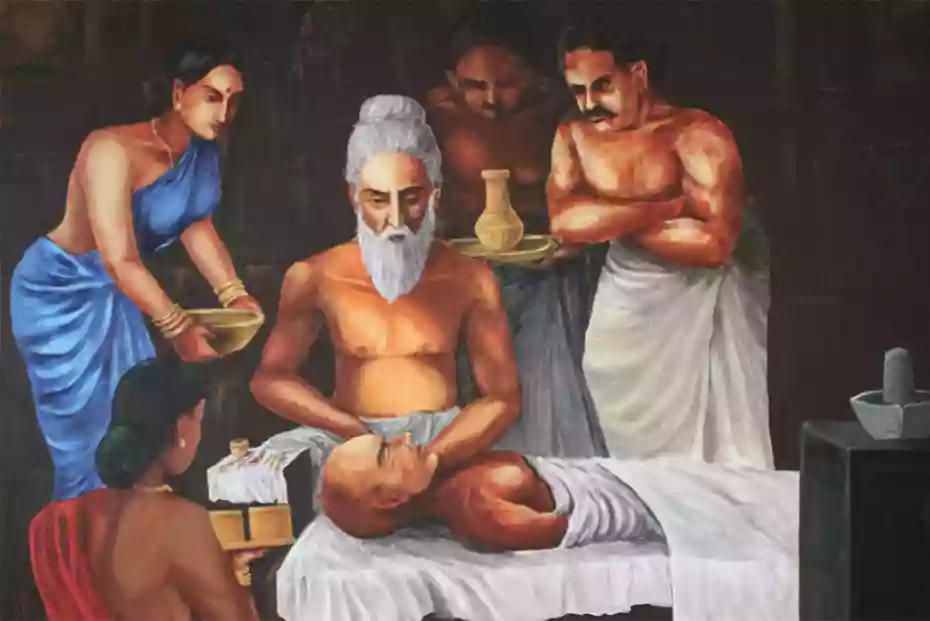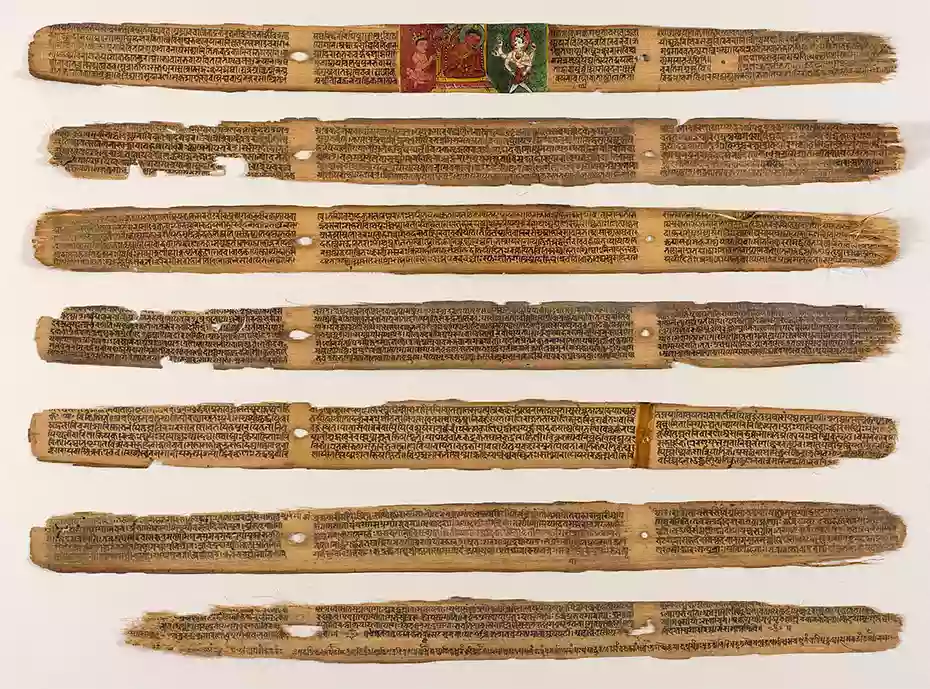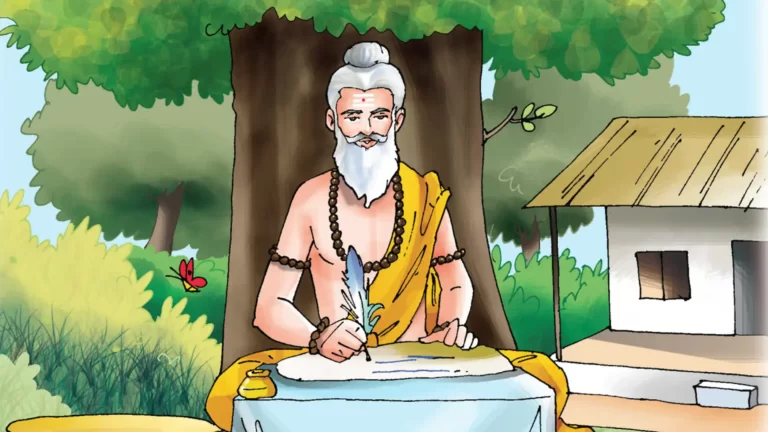The Father of Indian Medicine
Acharya Charaka was born in India around the third century BC. Within this history of Charaka, we are privy to the breadth of his influence on India. Acharya Charaka is hailed as the father of Indian medicine. His work, the Charaka Samhita, is considered one of the most important Indian texts on medicine and health. The Charaka Samhita offers an array of information regarding Indian medical practice, including its principles, practices, and therapies.
Who was Charaka?
A huge number of people are still unaware about the history of Acharya Charaka. Not only was Acharya Charaka well-versed in Ayurvedic pharmacology, but he was also skilled in astrology and could read physical signs as well as cast horoscopes. He had a complete knowledge of all three doshas and how they interplayed with each other. According to one legend, Emperor Sushruta handed him an entire collection of medical texts which were then memorized by Charaka during a single night before returning them to their owner! A feat that can only be described as superhuman. His mastery of Ayurvedic medicine is unparalleled in history; he is mentioned alongside luminaries such as Hippocrates and Galen, who both lived centuries after him.
About Acharya Charaka
If Acharya Charaka was born today, he would be most certainly called an Indian Astrologer. His work is invaluable to anyone who wants to study Ayurveda and Hindu philosophy. He lived in India during 3rd century B.C and was a student of sage Agnivesha who is considered as one of the foremost authorities on Ayurvedic medicine. In fact, it’s very hard to believe that there were any human beings with so much knowledge about Ayurvedic medicine as there are no such books written after him!
Father of Indian Surgery
A disciple of Agnivesha, Charaka was a famous Ayurvedic doctor, and his work ‘Charak Samhita’ is a classic treatise on medicine that still stands tall in present times. It was written somewhere between 200 B.C and 200 A.D. According to his record, he lived for 84 years and died at Varanasi in 340 AD. He also performed many surgical operations like removing cataract with a needle, trephination etc., which are described elaborately in his book. In fact, he is considered as father of Indian surgery.
His fame has spread all over Asia and Europe even during his lifetime. The most important contribution made by him was that he brought about a new era in medicine. Before him there were several schools of thought regarding treatment but after him there emerged only one school called Acharayas (followers) who were followers of Charaka’s teachings only. This system prevailed till 19th century when modern scientific methods came into existence.
Charaka Father of Ayurvedic Medicine
In the history of Acharya Charaka was a great physician, Siddha and Ayurvedic scholar called Acharya Charaka lived in 4th century CE. He was born in Shivapuri Hills, near modern day Jaipur. Siddhars who were considered to be God by many people then and they are worshiped even today at several places in South India. It is said that he was born into a poor family but due to his intellect he became one of richest persons during his times. After completing education, he worked as a medical officer for King Amrtavarman who ruled Chitrakuta (modern day Chittor) at that time.
The Life of Acharya Charaka

let us briefly discuss about life of Acharya Charaka. He is known as a physician who belonged to ancient times. For that reason, we are not sure when exactly he lived or what his exact birth date was. We do know from ancient texts that he lived in India and other records show that he died in approximately 300 B.C. But even more than that, there’s not much information out there about him. There are no known images of him and no writings by him have survived (though it’s believed that he wrote several volumes on medicine).
With regards to history of Acharya Charaka, the most accurate stories come from other scholars and the tales don’t always agree with one another. One thing we can say for certain is that he had a profound impact on Indian history and culture. As you may already know, Acharya Charaka was an Ayurvedic doctor—which means he practiced an alternative form of medicine called Ayurvedic Medicine. According to Ayurvedic principles, health begins with balance in your body and mind. To achieve good health, you must maintain a proper balance between your physical body, your mental state of mind, and your spiritual well-being.
Father of Ayurveda

Ayurvedic medicine is one of India’s greatest contributions to humanity, offering natural cures and remedies that have existed for thousands of years. Although it originated in India thousands of years ago, Ayurvedic medicine has only recently been rediscovered by Western practitioners and is beginning to take root in modern health care practices. This resurgent interest has created an outpouring of information on Ayurvedic practices, treatments, and philosophy; however, most writers are not medical professionals and many still spread misinformation.
In order to understand how Ayurvedic medicine works and how it can help us today we must look at its history. However, it’s state-of-the-art, keeping up with the technology of the twenty-first century, with their numerous remote associates. A Muslim woman has just called in to explain her stomach pain which has been ongoing for quite some time now. The doctor’s assistant pays close attention to Ajay’s symptoms and enquires. The Institute claims it handles an average of 2,000 calls a day, with ailments ranging from acne to cancer. The staff will listen to you, consult the writings of Charaka and his successors, and recommend a cure.
The main reference for the clinic’s knowledge of Ayurveda is also the only reference for Charaka’s biography: the Charaka Samhita, or ‘Compendium of Charaka’. The version of this story that has been handed down to us dates back to between the third and fifth century CE. So, this version of the story is actually about a hundred years or more after his lifetime. Given the content of the story, which includes locations from the Himalayas, it seems reasonable to guess that he lived in northern India. A fifth-century Chinese source claims that Charaka was the physician to the Kushan king Kanishka. Kanishka’s dominion spread from Bactria to present-day Bihar, though it’s uncertain whether the name Charaka refers to one man or to members of a group – it could be a community of practitioners. Thus, the Charaka Samhita contains multiple voices and a range of topics, presenting different perspectives from different doctors. As Aryabhata, its author says he was inspired by the gods – though, to complicate things, he does not state which gods he’s talking about.
The Work of Acharya Charaka
Before we dive into his work, it’s important to understand who he was and what role he played in Indian medicine. So who was Charaka? A scholar from India, considered to be one of the founders of Ayurvedic medicine. And he lived about 1,500 years ago. In addition to founding Ayurvedic medicine—you might call him its father—Charaka created two great texts for students of Ayurvedic: The Treatise on Medicine and The Aphorisms. Together these two texts are known as The Father and Mother of Indian medicine and still serve as foundations for some modern-day treatments in both Eastern and Western societies. Even though they were written thousands of years ago, they’re still studied today by students around the world.
History of Acharya Charaka and Charaka Samhita

History of Acharya Charaka and Charaka Samhita is a text written in Sanskrit and composed in a poetic style so that it can be recited, memorized, and passed down for generations. Its model of the body and its functions was radically different from what we would recognize today, and its concepts don’t translate easily into modern terminology. For example, Ayurveda’s fundamentals are not built around the circulation of blood, nor a beating heart. Instead, they revolve around an idea of body humor and beliefs that if these bodily locations are displaced, illness will befall the body. Like other traditional medical systems, Ayurveda views the human body as part of a vast natural, even cosmic, system of causality. But within that system, individuals play an important role as moral actors shaping their own lives and trying to help sustain the order of the universe. For example, a person’s karmic effect on the next life has repercussions on this life too. Simple disagreements, changing lifestyles, and substance abuse can all be at the root of what we now call disturbances of the humours and other afflictions. Charaka refers to them as violations of good judgment.
The information available in the Charaka Samhita can also be a bit harsh and without personal touch. One of the common calls that Jiva specialists get are about fertility issues, especially the question of how to produce a male heir. It’s an Indian obsession that has helped lower the chances of girls when compared to boys. The distortion of the sex ratio has left many female children not feeling like their concerns are a priority. A feminist fertility counsellor, Charaka is not. Here’s one scholar’s summary of his words: Although the concept of Prakriti enables practitioners to identify treatments for their patients that are non-generic, it’s not exactly customized to the individual.
Indians’ feelings of pride about, and their assertions about, their ancient medicine are spilling over the top. Inaugurating a private hospital in Mumbai, filled with state-of-the-art Western technology (and run by the wife of the country’s most successful industrialist, Dhirubai Ambani, Prime Minister Narendra Modi cited the example of the god Ganesh as a pioneering instance of plastic surgery. There are currently health concerns that are unsolved in India. Prime Minister Modi added insult to injury when he stated that Ganesh’s elephant head was actually a surgically transplanted body part. it has an unacceptably high rate of early deaths from preventable illnesses, too few qualified doctors and nurses, a frayed health safety net that throws more than sixty million people into poverty every year, and a meager public health budget. Unsurprisingly, the ill-health and stress created by ever-increasing wealth, urbanization, and aggressive competition for jobs has had a surprisingly good effect on Ayurveda. Due to the challenges, they are forced to endure in their workplace, engineers must keep a tight grasp on their own health – which is often difficult given the country’s poor public health system. In this often-isolated environment, Ayurveda can be a parental figure, admonishing you and comforting you about your eating habits.
Hence, it should come as no surprise that Ayurveda has made its way into the mainstream. Now Dr. Chauhan has his own TV show as well as a hotline and a flashing clinic number on the screen. Every time the show airs, Jiva Institute is overwhelmed with incoming calls. But those who lack the privacy to call into work or home can talk to a psychologist on Jiva Institute’s website instead. Although Ayurveda can’t perform miracles and won’t solve India’s public health crisis, it is appealing for the wealthy, expensive for the middle class, and hurtful for the poor because it often proves to be the lesser of two evils. One reason that people turn to Ayurveda is that it seems to promote their personal identities.
Next Article : The Relation of Osiris Isis and Horus
